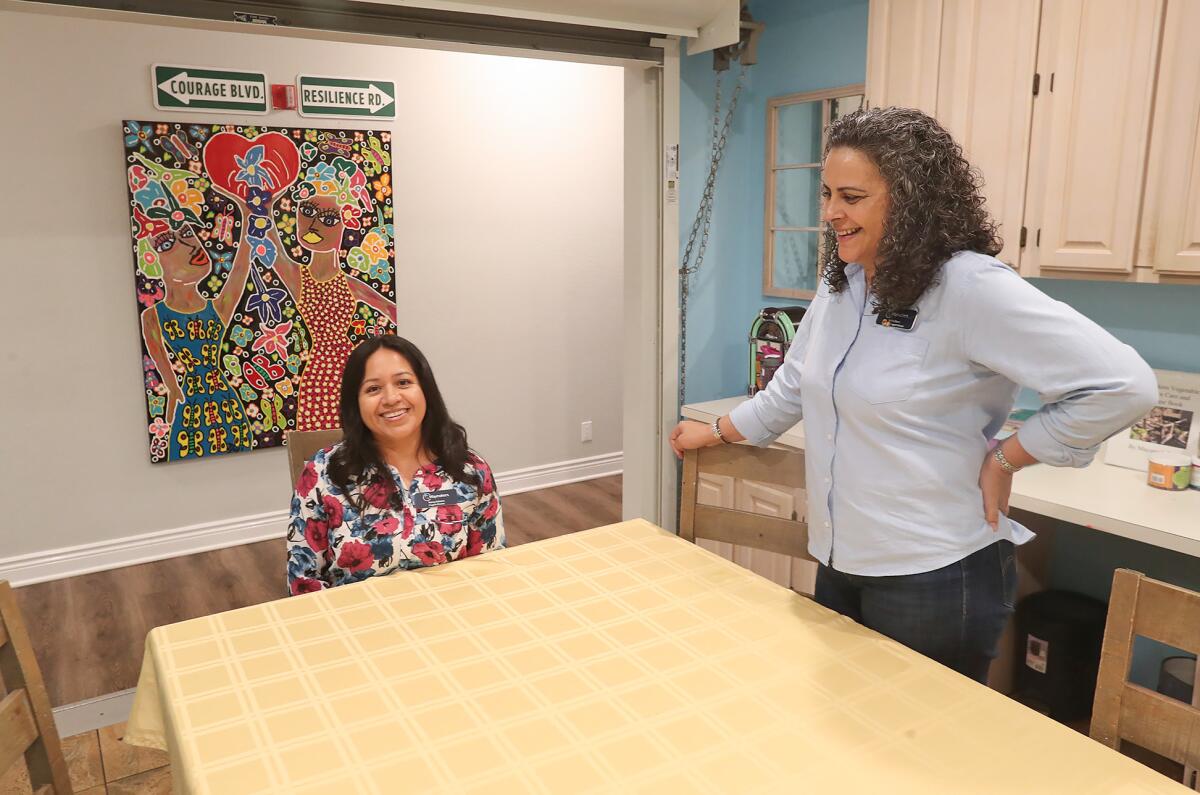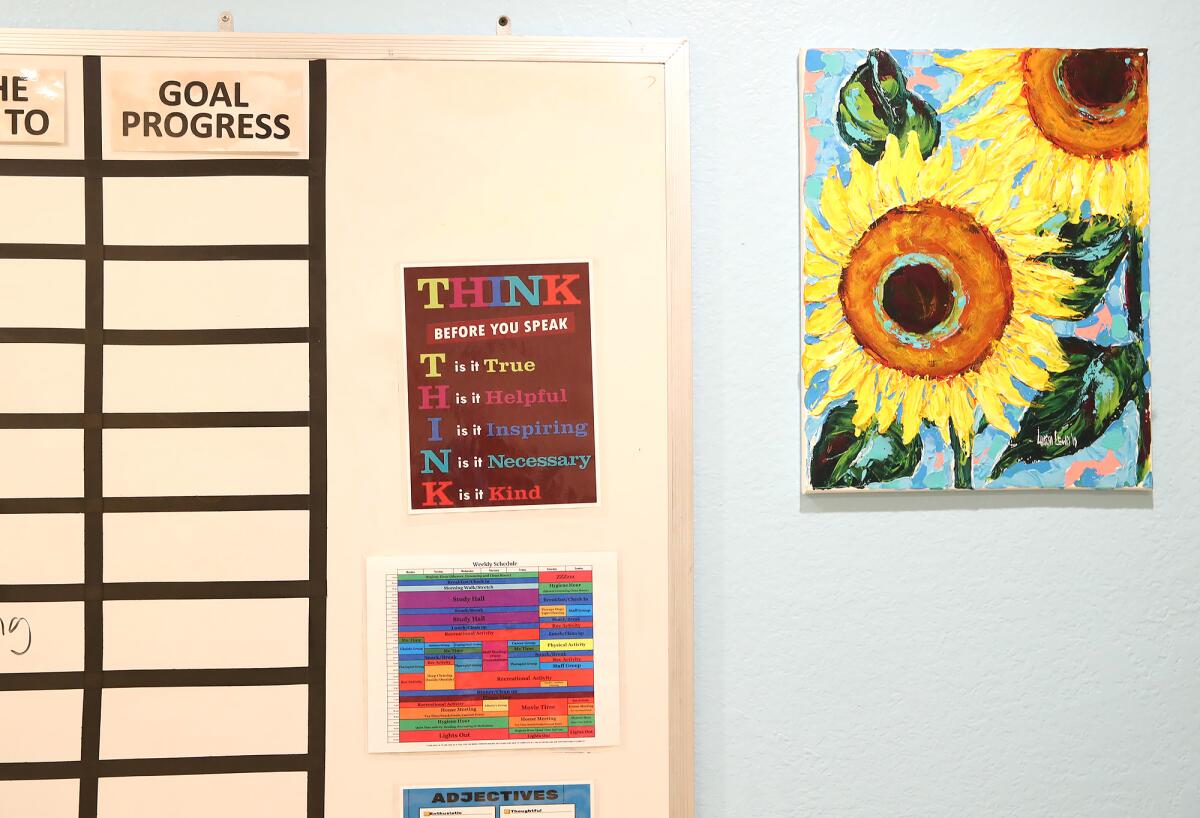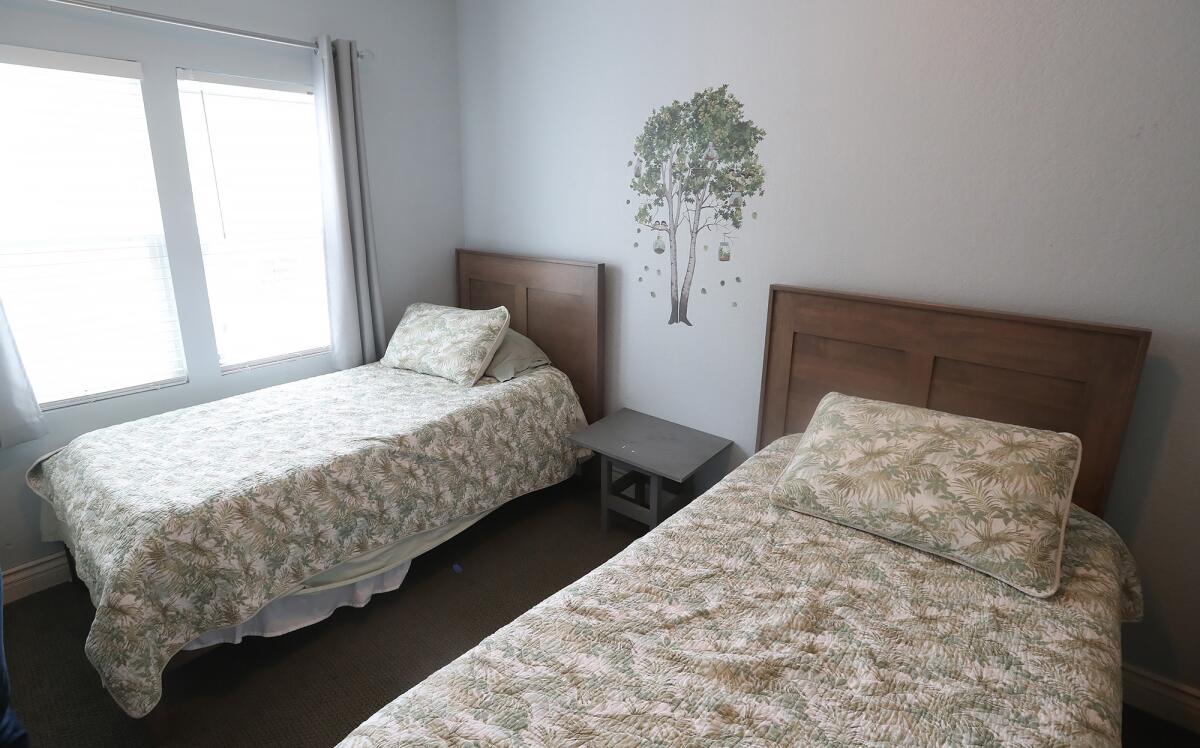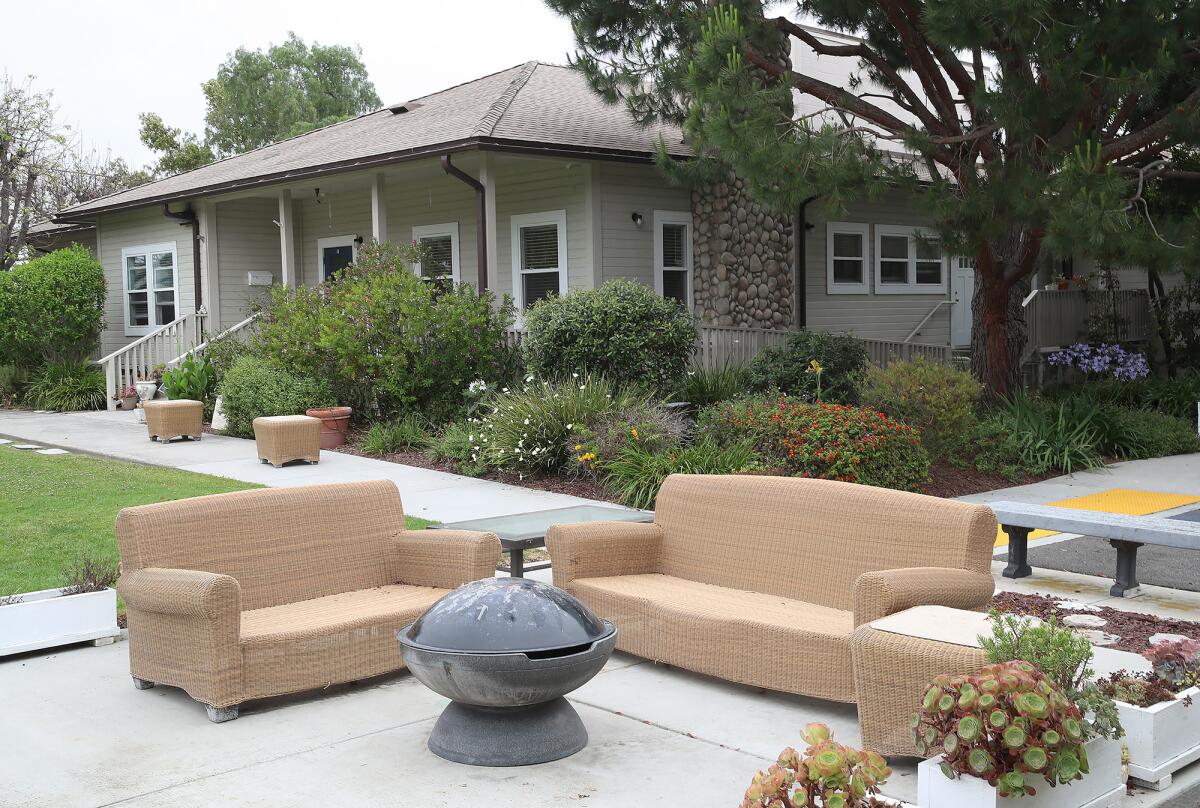Waymakers Huntington Beach Youth Shelter seeks ‘Change for Change’

Children and teenagers staying in the Waymakers Huntington Beach Youth Shelter can’t have their cellphones with them. This is one reason that shelter co-director Isabel Kluwe believes they should be commended.
“I know a lot of adults who wouldn’t be OK with that,” Kluwe said with a smile.
The shelter provides for runaway, homeless, abused and at-risk youth, ages 11 to 17, in a home-like setting. Children are allowed to stay there for up to three weeks, free of charge to them and their families.
They are given a scheduled structure when they’re within those walls, sleeping in one of the shelter’s 12 beds.

The routine helps many of them. But Waymakers Huntington Beach Youth Shelter is currently looking for funding that it used to find, well, routine.
Shelter co-director Nancy Galeana said there has been a decrease in monetary donations in the current economic climate. Not only that, but grant money is drying up for the facility.
“For several of the grants that we were receiving, we’ve got to the point where we have to take a year or two years off,” Galeana said. “We’ve hit that wall where we have to take a break from certain grants before we can apply again.”

The shelter also has more competition than ever coming out of the coronavirus pandemic.
“All of the amazing COVID funding that was spread out in order to really maximize reach to children and families at schools, community centers, there’s a great pot of money,” Kluwe said. “We ended up with some competitors who are getting some of that money that would ordinarily maybe come to us. It’s a shame, because we’re all trying to do the same work, but we’re also competing for the same pot of money.”
The shelter’s last annual budget showed a deficit of $200,000, Galeana said.
At the start of this month, the nonprofit started a “Change for Change” campaign. It will run for several weeks, until the shelter holds its 18th anniversary celebration on July 18.
Buckets with QR codes can be found around the city, or those who wish to help are asked to contact Waymakers Huntington Beach engagement and volunteer coordinator Emily Hein at [email protected] or (714) 842-6600.
This year’s Point in Time count showed that homelessness in Orange County is on the rise, with 7,322 people living either on the county’s streets or in shelters. That number represents about 1,600 more people than the 2022 count.
Yet, of the more than 1.2 million children and youth nationwide experiencing homelessness identified by public schools in the 2021-22 school year, only 4% were unsheltered and 12% were staying in shelters. The rest were staying in motels or temporarily with other people due to a lack of alternatives.
That trend holds true in Orange County, Kluwe said. Many Waymakers Youth Shelter families fall under the umbrella of being either homeless or on the precipice of becoming so.

“The most common thing that we see working with some of our parents is that they’re working their jobs, making ends meet just barely, but their child is in crisis,” Kluwe said. “Every moment that keeps them away from work because they need to attend to their children puts them at risk of losing employment.
“A place like this is preventative in that sense. Go to work, stay in contact with us. We’ll do our best to accommodate your schedule. We have clinicians who work weekends. We have clinicians who stay as late as 8 p.m. if needed to accommodate parents.”
The children at the shelter have plenty to do after they wake up at 7 a.m. That includes therapeutic activities, plus alone time and meals together. Three associate clinicians are available, plus two clinical practicum clinicians when the school year starts.

“I often tell people out in the community when we do outreach that when they come here, it’s not camp,” Galeana said. “They’re actively working on themselves, on whatever crisis is going on. Not only that, but they’re learning coping skills, they’re learning different mechanisms.”
The funding shortage is a cause for concern. Waymakers Huntington Beach Youth Shelter doesn’t get money from the state. It does receive funds because of the federal Runaway and Homeless Youth Act, but Galeana said that represents only about a third of the budget.
The leadership team finds that many locals, even in Huntington Beach, aren’t aware of the shelter, which is located in Central Park East, not far from the Central Library.
It has helped prevent youth homelessness for more than 2,200 Orange County children and teenagers since 2006, yet it also needs help.
“I think one of the best ways people can help is just telling the people that you know,” Hein said. “You might not be the person, but you might know the person, or they might know the person. I think just extending our reach is invaluable.”

All the latest on Orange County from Orange County.
Get our free TimesOC newsletter.
You may occasionally receive promotional content from the Daily Pilot.




